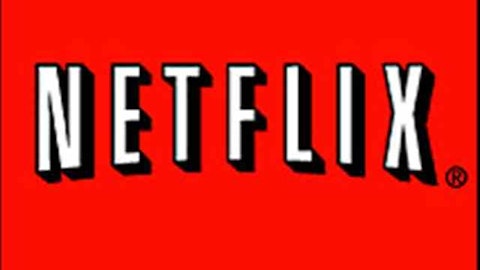Not too long ago, and eBay Inc (NASDAQ:EBAY)’s Paypal were making headlines. These leaders in the online shopping and payment industries moved rather successfully into the physical world, offering consumers the ability to buy goods in real stores and use their online billing accounts on site. On the other hand, Best Buy Co., Inc. (NYSE:BBY) and Wal-Mart Stores, Inc. (NYSE:WMT) have tried the alternate approach, moving from big-box retailers to an online presence.
Apple Inc. (NASDAQ:AAPL) has seen big success with the move to open stores across the country. Though a costly move, it seemed to be effective as consumers have appreciated the ability to try out new products, put hands on products before purchasing – a feature that companies like Amazon.com, Inc. (NASDAQ:AMZN) didn’t provide. By not relying on other retailers as its only method to sell iPods, iPhones, and iPads, Apple is able to capitalize on its record high sales for e-readers and tablets. In essence, it captures both on and off line markets.

The build up
Google Inc (NASDAQ:GOOG) has been prepping this move since last year. According to a report, it rolled out Google Inc (NASDAQ:GOOG) Shopping to several countries including the United Kingdom, Germany, France, Japan, Italy, Spain, and Switzerland. Google Shopping presents a “visually cleaner” result list for shopping queries, including new commercial formats.
Now, the company will take lessons learned to actual retail stores across the United States, providing, like Apple, a place to show off its growing number of products and allow consumers somewhere to go, ask, try, and buy. With the help of struggling Best Buy, which was over eager to team with a leader like Google Inc (NASDAQ:GOOG), it has set up Chrome mini-stores inside some Best Buy locations. Best Buy is still scrambling from a massive closing down of stores and laying off of employees over the past year. The loss of market share to Amazon and the migration to everything to a digital delivery system seem like an irreversible trend. The biggest hope for Google Inc (NASDAQ:GOOG) is that this move could help bolster the company’s brand image, and win over Android skeptics – yet another play against Apple.
How Google should and should not do it
Amazon’s first official store offered its line of Kindle products, as well as other key brand merchandise. In their own store, Amazon has more control over the training, selling, and of course, more of the profits, as well as put them on the same level of Barnes & Noble, Inc. (NYSE:BKS), which offers the same for its Nook.
It is believed that Google will start by having its own shopping-mall retail presence. Unfortunately, according to an analyst from CNET.com, it seems to be trying too hard to be like Apple rather than differentiate itself. With “blue shirts, clichéd clean lines and permanent white shelves and fixtures”, it tries to ‘fit in’ with other tech-gone-retailer companies rather than stand out proudly.
A great analogy in the article follows:
“The Big Bang Theory” has proved to be one of the most popular TV shows, not because the nerds are hidden away, but because they are in full view, with a beautiful counterpoint in a real person called Penny. Imagine taking your kids, your lover, or your granny into a Google store and having them actually enjoy learning something…”
I agree with this assessment. Differentiation is most definitely the way to go to promote brand recognition, and carving out its own market share.
The Amazon Goliath has more or less dominated the online purchasing world, both with its own products and others. Millions of convenience-seekers just find a few clicks of the mouse a better alternative to gallons of gas, crowded aisles and indifferent cashiers. For Amazon, the only drawback from online to store is the problem of overhead. The cost involved in ‘keeping the lights on’ in a brick and mortar store might negatively impact its other competitive advantages – namely price points.
The key to Google’s success is already underway – steady planning, research, and appropriate implementation. It cannot rush into gobbling up real estate and suffer the same fate as companies that grew too fast and were left holding the bag when business slowed. The costs it will incur is absorbed by constant revenue from other online sources.
What will happen
My prediction is that after the novelty wears off, people will retreat back to their online shopping sanctuary where power lies in a few simple clicks and home delivery. Even so, I don’t see Google suffering from this, as it has proven to be even-handed in its approach to adapting to consumer trends. While Google shares hold steady at around $800, my prediction is that as preparations increase, more will jump into the stock and we will see a rise. However, new costs will most likely offset new sales in their stores and compress margins. Stores will require significant working capital, even if the company pursues sale-leasebacks for its physical buildings.
Even so, I still see this as more attractive than the future of retailers like Wal-Mart and Best Buy. In particular, the days of specialized big boxes like Best Buy are coming to an end. As numbers prove, consumers opt for all they need under one roof, rather than one stop for groceries, one stop for clothes, one for electronics, etc.
Summary
Google is still a great buy. I think the strategic and planned approach to its new venture will show great returns. I applaud Google’s leadership and wisdom in the exhaustive testing and the patience displayed in its roll out strategy.
The article Google Tries On a New Hat originally appeared on Fool.com and is written by Maxwell Fisher.
Copyright © 1995 – 2013 The Motley Fool, LLC. All rights reserved. The Motley Fool has a disclosure policy.





